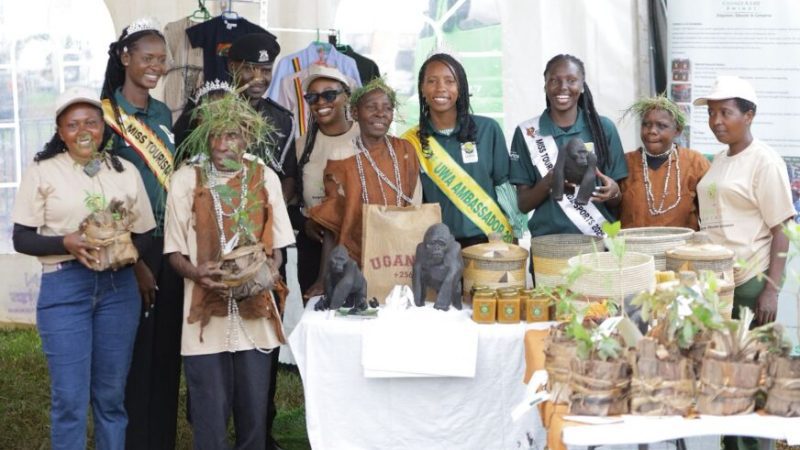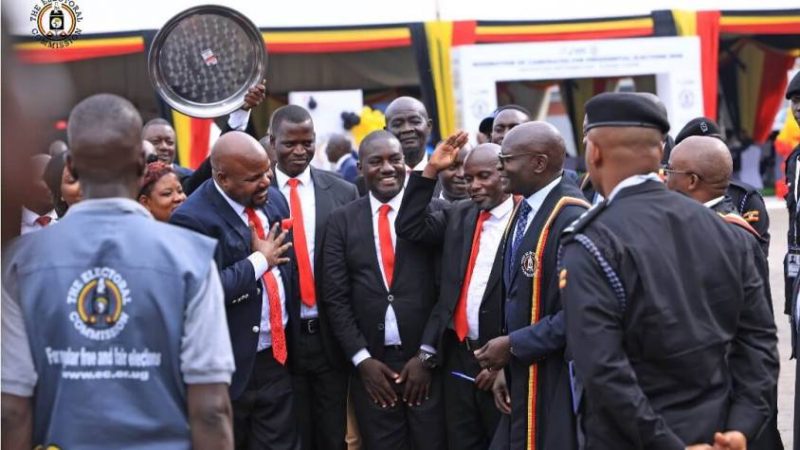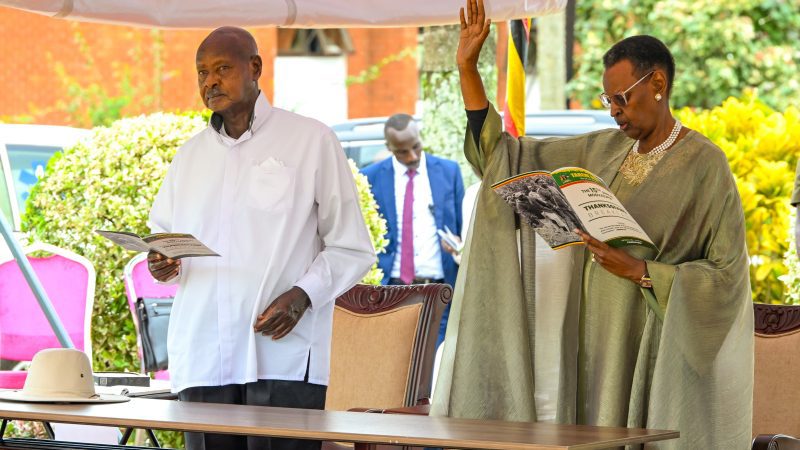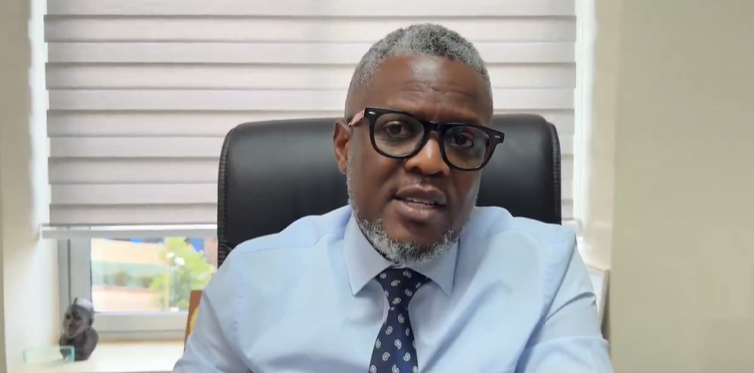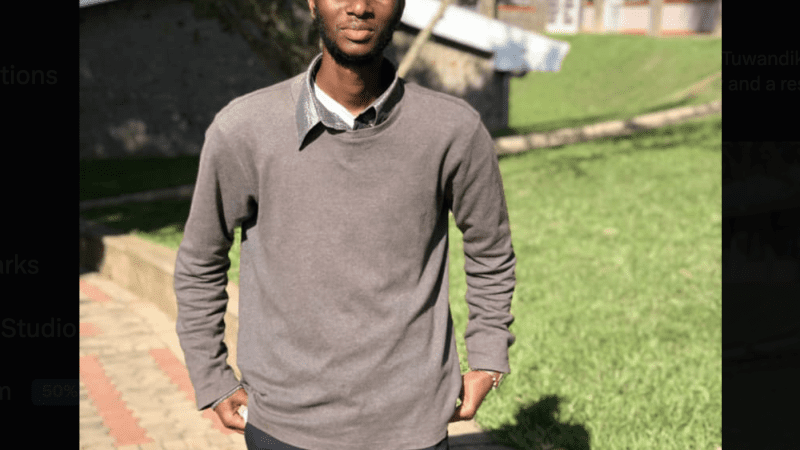On Wednesday, Igara West MP Raphael Magyezi tabled the controversial age limit removal motion that seeks to delete the upper age limit in article 102b that bars all those over 75 years to contest for president.
Magyezi’s motion was seconded by majority ruling National Resistance Movement (NRM) MPs after speaker Rebecca Kadaga suspended 25 opposition MPs for singing down the motion on Tuesday.
Parliament then granted leave to Magyezi to introduce a Private Member’s Bill titled ‘The Constitutional (Amendment) Bill, 2017.
Magyezi argued that that the object of the Bill was to amend the Constitution in accordance with Articles 259 and 262 to provide for more time within which to hold presidential, parliamentary and local government council elections.
He also said that the bill would deal with the handling of electoral petitions.
“The above recommendations under Article 104 were made by the Supreme Court on electoral reforms a year ago but up to today government has not brought them to the House,” Magyezi said.
“We as citizens should have a right to choose who governs us regardless of their age, as long as they can serve,” Magyezi added, touching the most controversial proposal since the deletion of the term limits in 2005.
His motion was seconded by Moses Balyeku (Jinja West Municipality), Jackson Kafuuzi (Kyaka South) and Doreen Amule (Amolatar District).
“The Article is very discriminatory and enhances inequality. People should be free to choose who they want to lead them. If a person is old but still fit enough as considered by the doctor, then it should not be an issue for one to run for president regardless of their age,” reasoned Balyeku.
“The Constitution discourages age based discrimination; the right that allows an 80 year old to vote should allow a 75 year old to stand for elective office especially if they are healthy and sane,” said Kafuuzi.
The opposition MPs have vowed to continue opposing the motion.
But what exactly will happen next? According to Parliamentary Rules of Procedure, Magyezi’s motion will be a private member’s bill – private because it does not originate from government.
Although some in the opposition argue that the bill has been engineered by government – reportedly to allow three-decade president stand for reelection in 2021, it is a private member’s bill on the face of it – at least it has been tabled by an MP who is not a member of cabinet.
“A Private Members’ Bill shall be introduced first by way of motion to which shall be attached the proposed draft of the Bill,” reads procedure number 111(1). This is what exactly happened on Wednesday.
Magyezi can still enjoy the help of legal assistance by the Legal department of Government, according to parliamentary procedure.
He must also accompany the bill with a certificate of financial implications. This certificate, to be signed by the finance minister, details outputs and outcomes and how they fit within the overall policies and programmes of government; the costs involved and their impact on the budget; the proposed or existing method of financing the costs related to the Bill; and its feasibility.
“In the case of a Private Members’ Bill, the Clerk shall ensure the publication of the Bill in the Gazette and the distribution of copies thereof, to all Members.”
Magyezi’s bill will be sent to the committee on legal affairs for analysis before its second reading.
The committee will have 45 days within which to report to parliament with effect from Wednesday this week. The committee can amend or even include new proposals in Magyezi’s bill. Members can also take such proposals to the committee that will submit its recommendations for further debate.
Next will be the bill’s second reading that will be moved by Magyezi. The principles, justification and benefits of the bill will be outlined. The house will then receive and debate the committee report.
“The Committee shall examine the Bill in detail and make all such inquiries in relation to it as the Committee considers expedient or necessary and report to the House within forty five days from the date the Bill is referred to the Committee. If the committee adopts the committee report, it will be considered read for the second time,” read the rules in part.
“The committee may propose and accept proposed amendments in the bill as it considers fit, if the amendments (including new clausesand new schedules) are relevant to the subject matter of the bill.”
Once Magyezi’s bill passes this stage, it will be read for the third time in what is called the Committee of the Whole House chaired by the speaker.
Here members will vote on lifting the age limit or not, depending on the level of contention.



